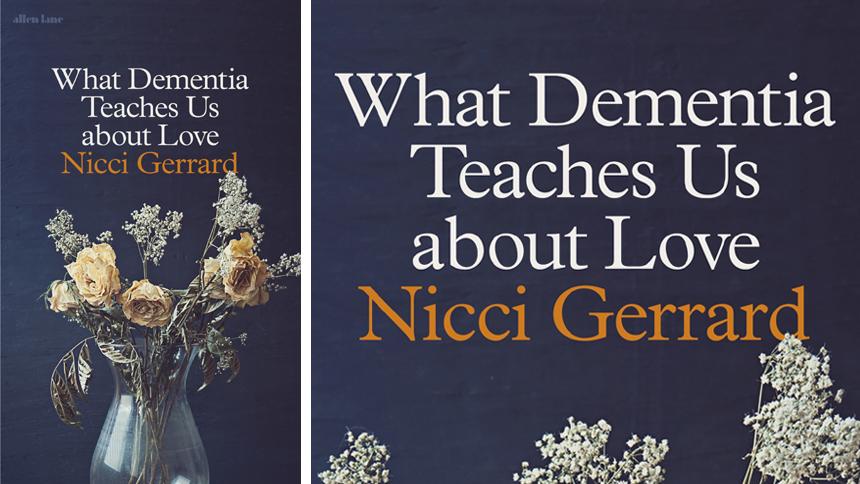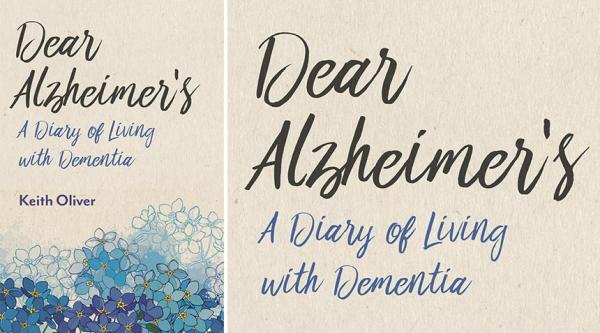Book group: What dementia teaches us about love
We hear readers’ comments about a thoughtful and emotional book that’s firmly rooted in real-life experience.
When Nicci Gerrard’s father, John, died with Alzheimer’s in 2014, she was sure that a five-week stay in hospital had contributed to his rapid decline. John’s Campaign to improve hospital care for people with dementia, set up by Nicci and friend Julia Jones, has had great practical success.
Her book, What dementia teaches us about love, looks at how we think and feel about the condition, but it’s borne from the same need to make sense of its real-world impact.
‘Having seen her father’s health rapidly deteriorate after admission to hospital, Nicci explores dementia from all angles, from the science of the disease and the psychology of advance planning through to the healing process that is so necessary for long-term carers.’ says Neroli Harris in our Dementia Knowledge Centre.

‘As Nicci says, it is all to do with thinking about dementia better – diagnosis is not a sentence but the beginning of a new chapter, albeit it a scary one.’
Gail Gregory in Lancashire, who has Alzheimer’s disease, says, ‘I found the book hard to get into initially, but once I got to the third chapter – The brain, the mind and the self – I was hooked and found it hard to put down.’
‘The writer has really captured moments that are touching, emotional and moving,’ says Gail.
‘This book is more than a narrative of a personal journey involving loved ones having lived with dementia,’ says Neroli. ‘Nicci refers to it as a “meditation on what dementia means”.’
True to life
These aims might make the book sound like an intellectual exercise. However, it remains rooted in the reality of people’s experiences of dementia and the difference that greater understanding can make.
‘The writer has really captured moments that are touching, emotional and moving,’ says Gail, ‘a true representation of care homes, hospitals and how society turns away from dementia.’
Neroli says, ‘This is a book of accounts of science, courage, joyfulness and stoicism. The ongoing theme is about understanding, communication and caring – making and keeping connections for as long as possible and learning new ways of communicating as things progress.
‘It is also a homage to carers, whether they recognise themselves in this role, as much as a person living with dementia recognises themselves.’
Real emotion
Of course, the book’s credibility also means that it can pack quite an emotional punch.
Mrs A Rosewell in Bristol cared for her husband John, who had Alzheimer’s, at home until his death a year ago. She listened to Nicci’s reading of this book for the audio version.
‘I cried a lot listening to the book, and sometimes it was really hard to keep listening,’ she says.
‘I think all professionals, including GPs, should listen to this audio book and learn not to talk over people with dementia, as if they are not a person with feelings and emotions.’
Another reader, John from Leeds, was diagnosed with mixed dementia – Alzheimer’s and vascular dementia – three years ago. He says he found the book overwhelming at times.
‘I would strongly recommend anyone, whether they themselves have dementia or are married to or related to someone who has, to read this powerful book – you will not regret it,’ says John.
‘Several times I had to put it down; I couldn’t continue reading because of the tears in my eyes,’ he says.
However, John is glad that he kept returning to the book.
‘I would strongly recommend anyone, whether they themselves have dementia or are married to or related to someone who has, to read this powerful book – you will not regret it.’
Gail agrees, ‘Dementia is still misunderstood, and Nicci is very honest and open.
Her experiences are a true representation, which draws you in.
‘It is enthralling, touching, emotional, descriptive and moving.’
What dementia teaches us about love, by Nicci Gerrard (Allen Lane, 2019), 272 pages, £16.99, ISBN: 9780241347454.
Your turn
We invite you to read The longest farewell by Nula Suchet (Seren, 2019), 280 pages, £12.99, ISBN: 9781781725184.
Let us know what you think about this heartfelt account of caring for someone with frontotemporal dementia – set to become a feature film – by 10 November 2019 so we can share it in our next magazine.




Mrs Cecilia Fanner
saysI took care of my mother-in-law (MIL) for nearly ten years with Alzheimers. She had many things stolen from her house and monies too taken from her by the Carers. The police would not help us whenever we made a report about the theft. The hospital she was in, put her in a nursing home without informing us despite me ringing up 2 to 3 times a day to enquire after her when she was an inpatient. They even put my name on the form to say that I had authorised this move. My experience with the hospital and the police has been nothing but atrocious. After several years into her Dementia, we were very lucky to get such a wonderful Team Leader for Social Services. He gave me so much help and support. My MILs GP was just excellent. She adored him. I had to sack the Care Agency as they were so awful. They did not even call us when my MIL was rushed into hospital. I then ran my own agency ie. hired my own carers for my MIL to ensure that she was cared for properly. I made a promise to my MIL that she will never be put in a care home as that was her phobia and, I kept to my word. She stayed in her own home till the day she died. It was not an easy task, but at least she was cared for well and died in her own place according to her wish. There are so many things that Dementia sufferers are not getting and it is an absolute disgrace. I had to fight for my MIL throughout the ten years I took care of her. From my experience, I can honestly say that Dementia sufferers are not treated well. I can write a book about my experiences with Care Homes, Carers, the hospital, etc.